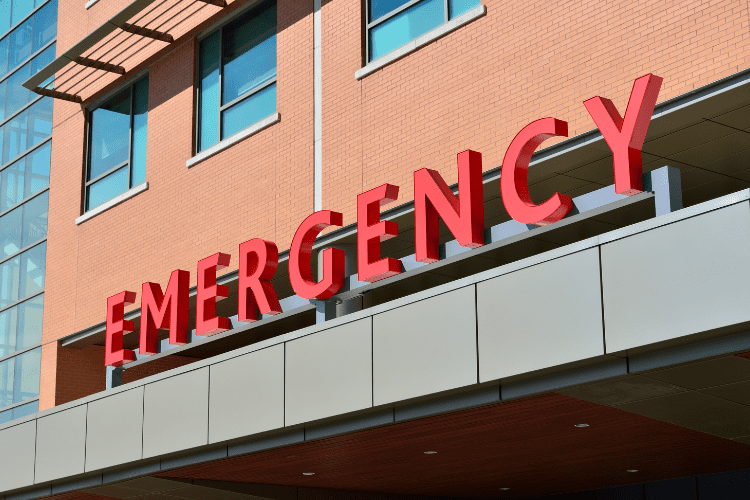How To Fight A Surprise Medical Bill: Even After the No Surprise Act

Surprise medical bills can be a consumer’s worst financial nightmare. Two out of three adults say they worry about receiving unexpected medical bills, and insured consumers are charged hundreds or thousands of dollars each year in surprise medical bills from out-of-network providers. On January 1, 2022, the No Surprise Act was signed to relieve consumers from this heavy financial burden.
While the No Surprise Act has brought relief to millions of consumers when it comes to their medical bills, it’s possible that surprises may still exist.
Do you want a breakdown of what the No Surprise Act covers and how to fight surprise medical bills that may still come? You’ll get that right here.
What the No Surprise Act Covers
When faced with a medical emergency, most people end up in the emergency room and, from that point, have little to no control over who treats them. Even if you have health insurance, when faced with life-threatening situations, you may not have the option to make a choice of whether your provider is in-network or out-of-network; you just need help.
In addition, if you’re out of sorts or heavily sedated, your provider at that time isn’t decided by you but by the hospital. In fact, when it comes to emergencies, the patient goes to the closest emergency room to get help quickly, and they rarely have the opportunity to pick who treats them.
Yet, prior to the No Surprise Act, consumers were still responsible for paying for out-of-network medical bills. They had to pay the difference between what the provider charged and their insurer’s allowed amount. This is a practice known as balance billing.
The No Surprise Act
Bans Balance Billing: The patient is no longer responsible for paying for out-of-network charges if they have no say in the situation. If the patient did not previously agree, they are rendered harmless and should not have to pay more than the in-network amount for the surprise medical bills for emergency services.
Ends emergency room surprise bills, including air ambulances: The new bill now mandates that all emergency room services, including air ambulances, be billed at the patient’s insurer’s in-network rate.
Requires consent for planned procedures: There are some medical situations where the patient may choose a provider that is not in their network. Some examples include giving birth or getting a knee-replacement or hip-replacement surgery. In this case, your insurance should send you an Advance Explanation of Benefits at least three days ahead of time so you can provide consent to be billed at the out-of-network rate.
However, even in those instances, there may be providers that you do not choose in advance, like anesthesiologists, radiologists, pathologists, or people who provide lab services. In this case, you will not have to pay the higher, out-of-network amount if you’re charged that.
Removes consumers from having to negotiate bills: Patients often have to endure the burden of negotiating payment amounts. This should not be happening. The new law requires the insurers and physicians or hospitals first to try to negotiate the payment. If an agreement can’t be reached, they should then go before an arbitrator to allow them to settle the dispute for them.
Is applicable to most health insurance plans: The act extends to most insurance plans offered by employers and marketplace plans, including plans offered through the Affordable Care Act. However, the new law does not include plans that provide only short-term (six months or less) coverage.
What the New Law Doesn’t Cover
While the No Surprise Act covers a lot that will bring relief to most consumers, there are still a few things that it does not cover.
Ground ambulance services: Most consumers who are left to ride in an ambulance to reach emergency facilities are left paying an average of $500. The new legislation leaves out this emergency bill due to the complexities around working with local municipalities. Most ambulances operate out of police or fire departments, other government agencies, tax dollars, or other private companies, making it difficult to include in federal law. However, an advisory committee has been convened to study this issue further to see what could be done.
Some emergency care centers: Not all emergency care centers are actual emergency facilities. Some are equipped to handle life-threatening emergencies, but some are mere clinics posing as emergency centers. The No Surprise Act only applies to urgent care centers licensed to provide emergency care services. In order to avoid mixing up the real emergency centers with clinics, it’s best to call first to see if they are licensed to provide emergency medical services.
Retail clinics: Retail clinics are drugstores or supermarkets that offer limited tests, vaccinations, and treatments, like a CVS Pharmacy, for example. If your insurance doesn’t cover your visit, you will be responsible for covering the cost of the bill from this non-emergency care.
Other facilities: Other facilities like birthing centers, hospice facilities, and addiction treatment centers are also not covered under the new law if they’re not affiliated with a hospital. So, before you agree to treatment, you should first find out if the facility is affiliated with a hospital and if they accept your insurance.
How To Fight a Surprise Medical Bill
In spite of knowing what the bill covers and what it doesn’t cover, there’s still the chance of receiving a surprise medical bill. If you receive a medical bill that you weren’t expecting to have to pay, consider the following:
Don’t automatically pay a bill that you disagree with. Here are some things you should do when receiving a surprise medical bill you disagree with:
- Call the provider, the hospital, or both. Make sure all players are doing their part.
- Request an itemized bill and review the itemized bill carefully for potential errors, duplicate charges, or charges for services you didn’t receive. Report any errors to your insurance company and the hospital. Almost half of all medical bills contain significant errors.
- File a complaint. If you receive a surprise medical bill that doesn’t get resolved, the new law allows you to file a federal complaint at 800-985-3059 or online.
Some state laws offer consumers protections from surprise medical bills through their Consumer Assistance Program. Contact your state to learn more about that.
If you’re uninsured, the new law requires healthcare providers to provide you with a good-faith estimate before they care for you. If the final bill is $400 or more than that estimate, you can file a complaint with the Centers for Medicaid and Medicare Services.
The Bottom Line
Surprises come in all forms. Surprises in the form of top-heavy medical bills are no fun, but history has proven that they do exist. The No Surprise Act has taken some of the financial burden off of the consumer. In the event you still get billed for medical services you didn’t expect to receive, use the tips above to help alleviate the pain.
Read More:










